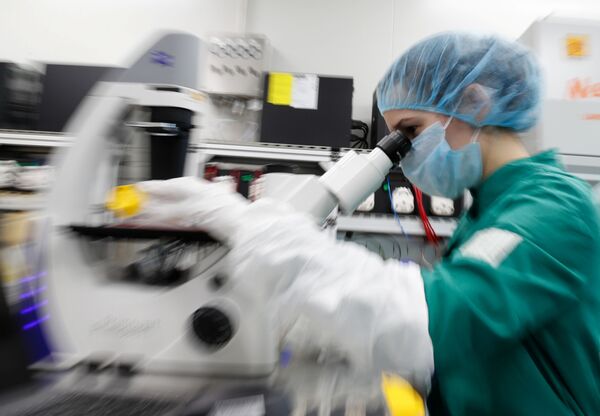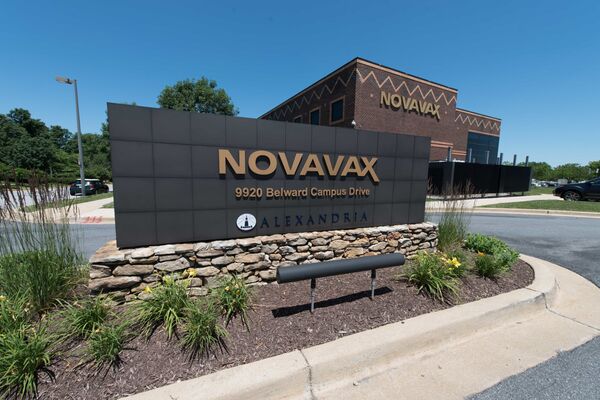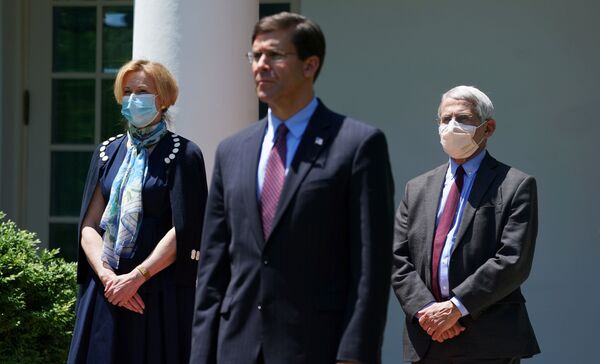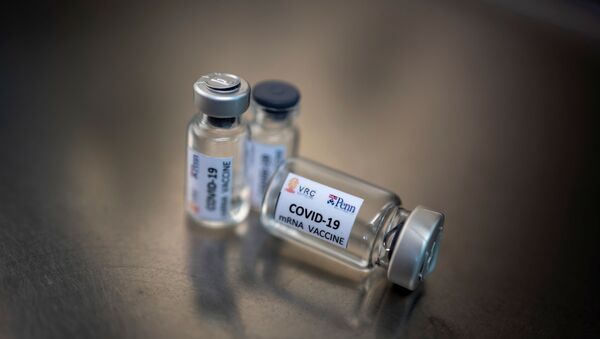American biotech company Moderna, racing to develop a COVID-19 vaccine, has been slammed for lack of transparency and allegedly seeking to boost its share price by holding a stock offering just hours after releasing the first “positive” results of its early human trials, reports the Independent.
Questions have been raised over the way the company disclosed results from the first phase of its clinical trial of a potential coronavirus vaccine involving humans, as well as the absence of critical information regarding the candidate’s efficacy.

Released in a press release, the results are yet to be peer-reviewed by the wider scientific community.
“What is important at this moment is to independently verify the science and that apparently is not possible,” Ellen t’ Hoen, an expert in medicines policy and intellectual property law, was cited as saying by the outlet.
Experts have been urging a cautious approach to the results, released by Moderna, underscoring that it’s difficult to assess the data from a press release.
“It must be noted that this is a Phase 1 study which has an object of showing the vaccine is able to induce an antibody response and that the dose range is appropriate. It will not be until the Phase 3 trial is completed that it will be known whether the vaccine actually prevents Covid-19 disease,” said Stephen Evans, a professor of pharmacoepidemiology at the London School of Hygiene & Tropical Medicine.
‘Positive’ Results Touted
Massachusetts-based Moderna, which is collaborating with the US National Institute of Allergy and Infectious Diseases led by Dr. Anthony Fauci, revealed last week that eight patients injected with its potential coronavirus vaccine in the Phase 1 stage of its study had developed an immune response capable of fighting COVID-19.
In our call with Governors today, Dr. Fauci shared exciting news from biotech company, Moderna! The first potential Coronavirus vaccine has shown promising results in a clinical trial. 45 participants received 2 doses of the vaccine & all 45 produced antibodies.
— Mike Pence (@Mike_Pence) May 19, 2020
The company, one of several which is currently conducting the initial stages of human clinical testing of its vaccine candidate, said the levels of antibodies developed by patients “mirrored” those seen in people who had recovered from the virus, suggesting the vaccine, named mRNA-1273, is able to generate a degree of immunity in humans.

However, the results do not yet offer substantive proof, nor confirm the long-term efficacy of the vaccine.
Moderna was the first of the companies in the race to produce a vaccine to make public evidence from human tests.
The announcement on 18 May sent Moderna's stock on a tear, reaching an all-time high of $80 per share. The spike of almost 20 percent marks a four-fold increase from the value of shares at the start of the year.
The company’s overall value soared to $29 billion on the same day.
Data made public by Moderna contains scant crucial detail, with findings for just eight of the 45 patients involved in Phase 1 of the trials released.
While Phase 1 included healthy volunteers aged 18 to 55 years, the exact age of the eight patients who displayed a “positive” immune response is not given, while older candidates, ranging from 56 to 70, and older are also involved in the trial.
“Whether the same benefits [of mRNA-1273] are seen in older age groups we do not know but that may be because they were recruited at a later stage,” said Professor Evans.
Another aspect of the data that is still unclear is the durability of the antibodies triggered by the potential vaccine, as at the time of Moderna’s press release, the trial was into its 43rd day.
This signifies that only two weeks had passed after patients who registered positive results were injected with their second dose of the vaccine hopeful.
“While having data at 40 days would be of interest for the vaccine to be beneficial it will require persistence for several months and this will not be known until Phase 3 trials are conducted,” Professor Evans was quoted as cautioning by the outlet.
Experts also point to lack of details regarding Moderna’s assertions its potential vaccine elevated levels of neutralising antibodies equivalent to those discovered in the blood plasma of recovered COVID-19 patients.
‘Very Questionable’
Another issue that has generated criticism is the way Moderna released its results, as on the same day the firm carried out a stock offering, offering shares of the company to public investors, ostensibly to use proceeds to fund manufacturing and distribution of its vaccine candidate.
Well played, Moderna. Well played. pic.twitter.com/oY4pVDOXTa
— John Arnold (@JohnArnoldFndtn) May 26, 2020
Knowledge Ecology International NGO, specialising in governance, intellectual property and health policy, emphasized the “jarring difference between the transparency that the public wants and what we are getting”.
Experts have deplored the company’s alleged manipulation of the public’s acute concerns about COVID-19 and the media’s intensive coverage of the pandemic.
“This is a publicly funded vaccine, and [Moderna CEO] Stéphane Bancel and the Moderna board should not be using partial release of information about trial outcomes to goose the stock,” James Love, consulting with the US Department of Health & Human Services over its vaccine research, was cited as saying of the stock offering.
A senior source involved in internationally-coordinated efforts to research a COVID-19 vaccine slammed Moderna’s press release and stock offer as “very questionable”.

There has been no official comment from Moderna regarding the timing of its stock offering.
The US biotech firm has been on a fast-track to develop a potential coronavirus vaccine, hoping to roll out Phase 3 of its study in July, involving the large-scale vaccination of thousands of subjects across several sites to evaluate its efficacy and safety under natural disease conditions.
“These data substantiate our belief that mRNA-1273 has the potential to prevent Covid-19 disease and advance our ability to select a dose for pivotal trials,” Tal Zaks, Moderna’s chief medical officer, was quoted as confirming.


